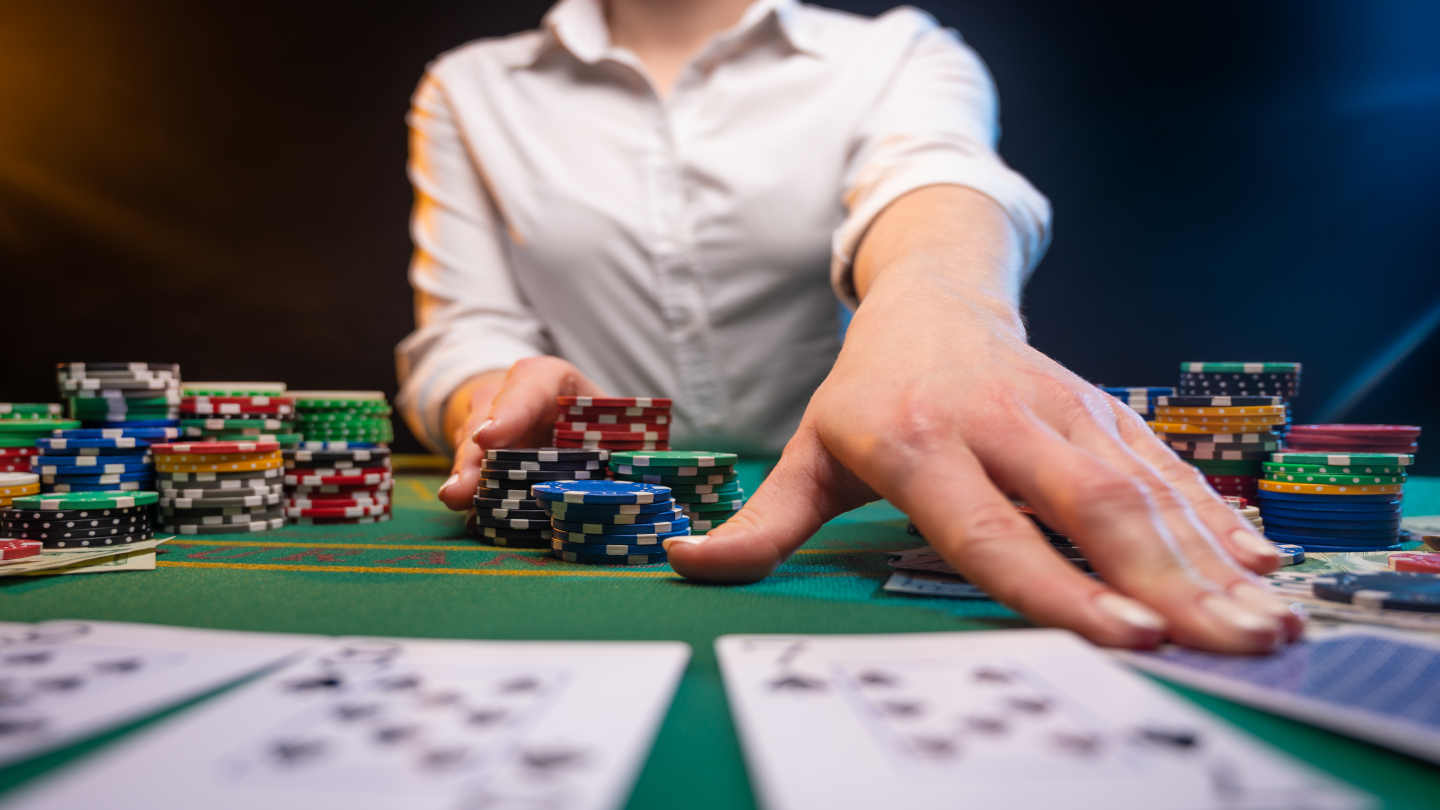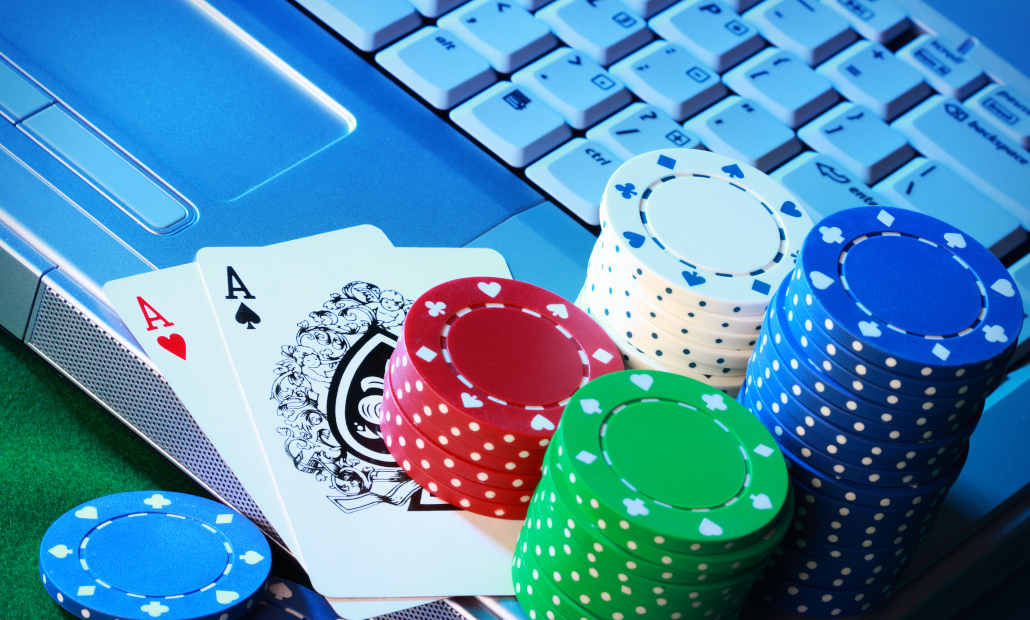Angle Shooting: How to Stay Safe & Protect Your Chips In Poker

15 minutes
Poker is definitely a multi-dimensional game that attracts people for many different reasons. At the end of the day, poker is about winning pots and beating your opponents using any and all means at your disposal. Heck it, people are even using poker bots to gain some advantage, so they are very likely to throw an illegal play in the mix.
Of course, there are certain rules you have to adhere to when doing so, but everything that’s within the rules is allowed.
However, with a game as complex as poker that includes so many moving parts, it’s impossible to cover every possible situation in detail. Sometimes, a particular spot is neither here nor there in terms of rules.
This is where angle shooting comes in.
The simplest definition of an angle shoot in poker would be an action or behavior with the hope of giving yourself an extra edge that comes close to breaking the rules but doesn’t cross the line.
Of course, some things are more in the area of cheating, but some players prefer to look at them as angle shooting instead.
Either way, shooing angles at the table is considered unethical, and it is frowned upon by a majority of players.
On the other hand, if you can do something to improve your winning chances without breaking any rules in the process, why not do it? If it’s just for the sake of being perceived as a “nice guy,” I can understand why some professionals would rather go for the chips.
So, I’m not going to be too philosophical in this article and defend either side. Instead, I’ll focus on various angle shooting techniques and things to be aware of at the tables.
What you do with this information – use it to protect yourself or try to shoot an angle on someone when the opportunity presents – is entirely up to you.
The Main Benefits of Angle Shooting in Poker
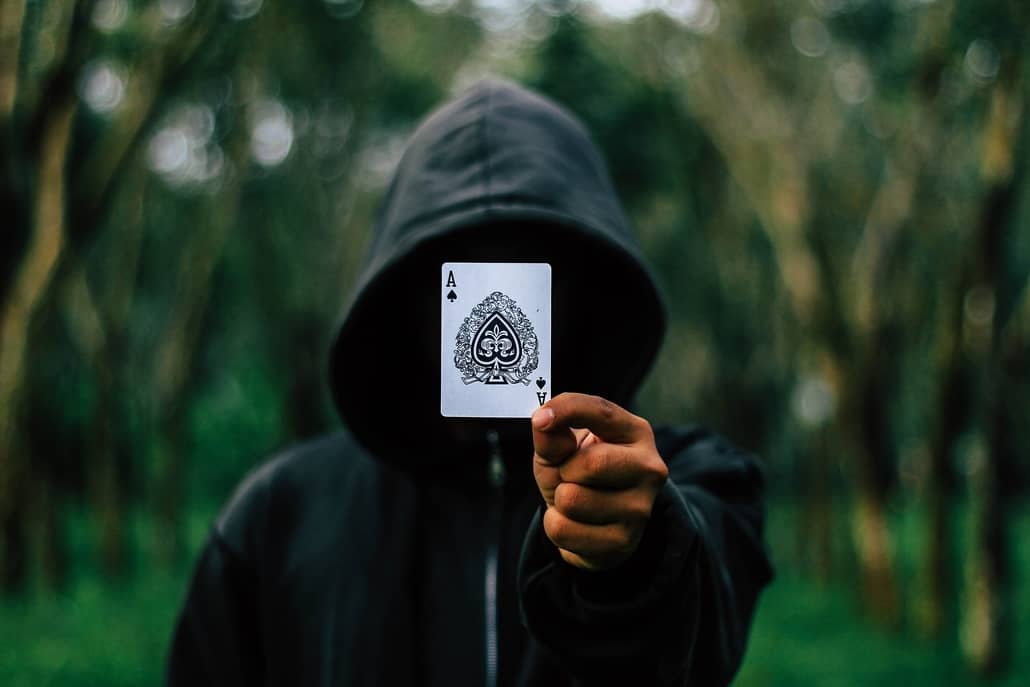
Images from Pixabay.com
First thing first, why should anyone venture into the grey zone of angle shooting and give themselves a bad name even if there are no other consequences. The answer is really simple, and it’s what you’d expect it to be: to win more money.
Various angle shooting techniques that I’ll cover in this article provide advantages such as:
- Gauging reaction from an opponent to assess their hand strength
- Winning pot at a showdown by getting the other player to muck their hand
- Figuring out how much to bet based on the reaction produced by the angle shoot
- Fooling your opponent into thinking you have a weak hand
All of these are some of the things you can expect to achieve by a certain angle shoot or a combination of angle shooting “strategies.”
Keep in mind that most of them aren’t exactly against the rules, so if someone uses them against you, you usually won’t get any help from the floor or the dealers.
It’s your job at the table to keep your eyes open at all times and stay aware of the situation.
If someone manages to trick you into doing what they want you to do without explicitly breaking the rules, you’ll find yourself in a tough spot.
Sure, they probably aren’t a very nice person, but that big pot they’d just won? Yeah, it’s theirs to keep, and you can moan about it all you want.
When you become a victim of a poker angle shoot, it can feel really bad and unfair. But, the fact of the matter is, poker isn’t a fair game in general.
How many times have you lost to a 3-outer on a river? That wasn’t fair, either, but the hand was played by the book, and the other player got lucky. Angle shooting is a bit more complex, but if it’s not breaking official rules, it’s up to you to protect yourself.
Top Three Angle Shoots in Live Poker
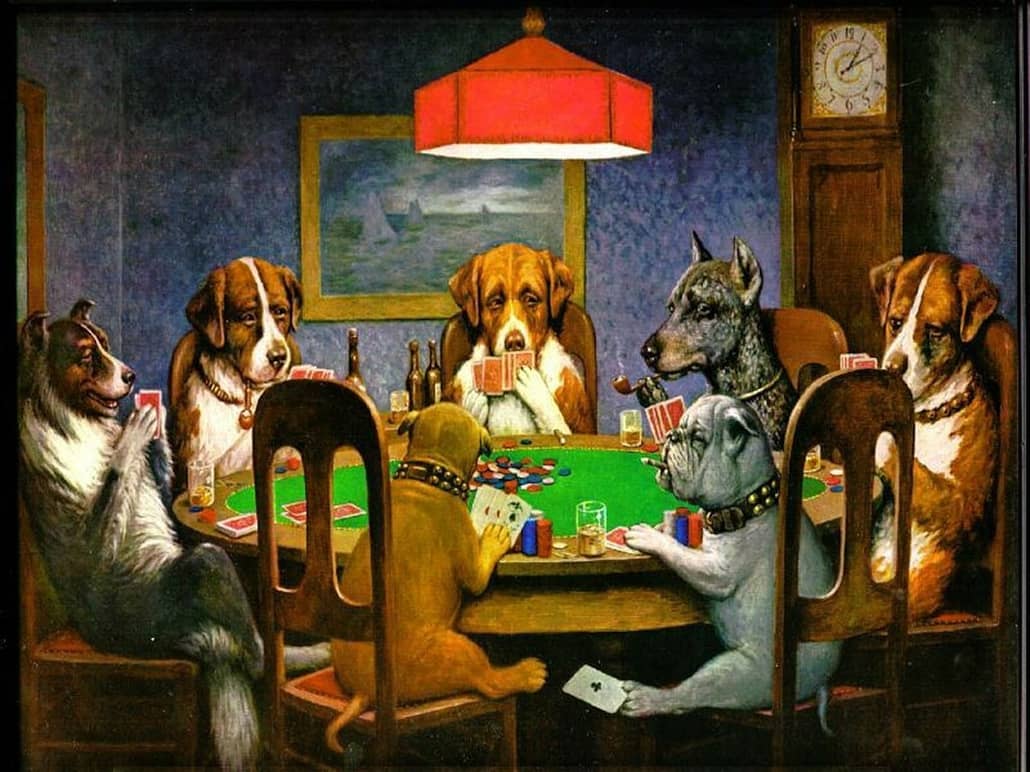
Angle shooting is much more present in live games for the simple fact that live poker presents more opportunities.
With real poker chips, cards, and actual players sat across from you, there are more angle shooting techniques available for those who want to use them.
Fake Fold
One of the simplest and perhaps funniest angle shoots you’ll come across when playing live is a fake fold.
I can’t help but laugh when someone new to live games falls for it because it’s not even a proper angle shoot, and it can only fly with those who aren’t familiar with live table dynamics.
One player reaches for chips to make a bet. The other player picks up their cards in their hand and moves them in a way to signalize they’re about to fold. However, the action is not on them.
An inexperienced player may figure his opponent is being really honest and announce their hand or let out a sigh of relief (if they were bluffing).
The angle shooter than puts their cards back on the table and just sits there waiting.
The player who has revealed a lot of information about their hand is now left in a very uncomfortable position. If they were about to bluff and let their opponent know about it, it’s over. They can pretty much check and give up.
The reason why I don’t see this as a serious instance of angle shooting is two-fold.
First of all, players pick up their cards all the time and do all sorts of weird stuff with them. Don’t let that fool you. Secondly, until those cards actually hit the muck, you should never give away any information or turn over your hand. As long as they are holding their cards, their hand is alive, and you’ll struggle to find a floor who’ll rule otherwise.
Hiding Big Denomination Chips

In theory and even according to poker rules, you’re always supposed to keep your biggest denomination chips in front so that they’re visible at all times.
This gives your opponents a chance to quickly assess the size of your stack, which can play a huge role in how they decide to play their hand.
In practice, however, players love to tuck their big chips behind or mix them in with small denomination betting disks.
Some don’t even do it to angle shoot; they do it for superstition or because they want to “protect” their winnings, or whatever else.
The point is, if you become a victim of this angle shoot, you’ll once again be out of luck. In a tournament, a player may be given a penalty after the fact, but you’ll still have to pay the full amount of their stack if you ended up in an all-in situation.
In a cash game, they can’t even get a real penalty because there is very little point in forcing someone to get up from a cash table for a couple of rounds (as they’re not required to post blinds when away).
So, it’s up to you once again.
When there is a big pot developing, and you’re about to put your opponent all-in, or they announce they’re all in, don’t rush things.
Take the time to figure out how many chips/how much money they have in front of them. Ask for the count or ask them if they have any big chips behind.
Now, if they say they don’t but magically produce another two or three black chips that were nowhere to be seen before, you’ll have a leg to stand on.
Remember, once you announce “all in” or “call,” your action is binding, just like in the case of a string bet. So, even if you weren’t able to see the other player’s stack properly, there isn’t much the dealer or the floor can do for you.
It would open too much space for reverse angle shooting, where players could claim they didn’t know their opponent had that much in front of them every time they find themselves in an unfavorable situation.
It’s really easy to avoid these spots if you put in a bit of effort. Simply take a deep breath when there is a big decision, make sure you know where you’re at, and only act when you have all the important information at your disposal.
False Advertising, i.e., Miss-declaring Hand at a Showdown
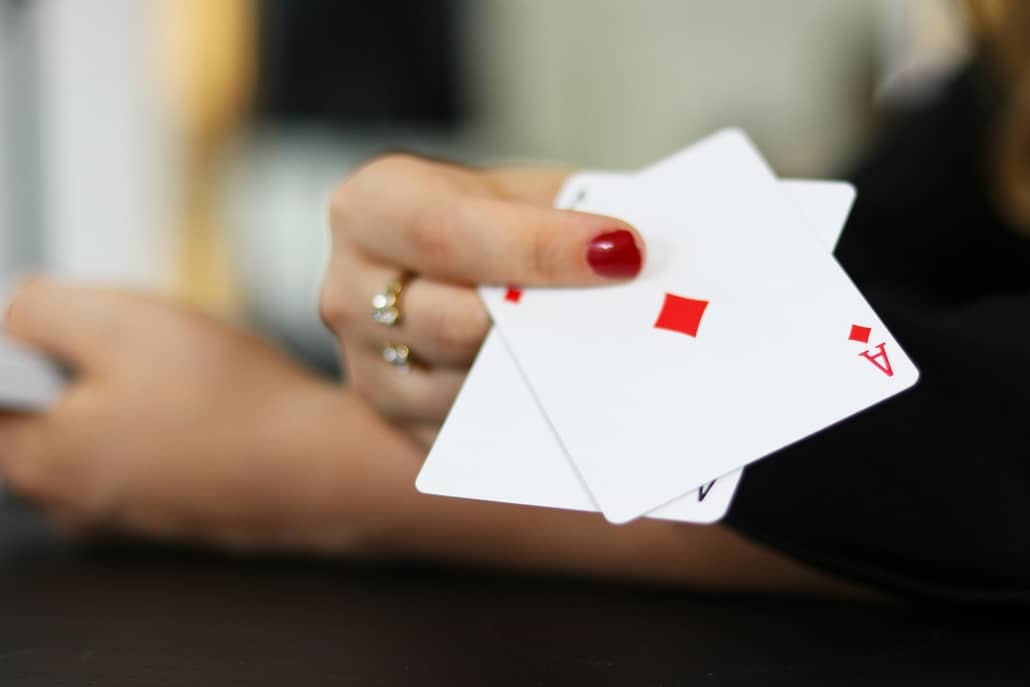
It’s nice to believe that everyone at your table is a perfect lady or gentleman and would never be slow rolling or using angle shooting techniques, but that is not the case.
In every poker game, everywhere on the planet, from the lowest stakes to the nosebleeds, there will almost always be at least one player in the game who only cares about nothing but winning in any way they can.
And if you’re not careful, you can easily become a victim of this particular angle-shoot.
You reach the river, all the betting is done, and now it’s the time for a showdown. Your opponent announces full house – one hand you were afraid of when you saw the board pairing on the river. Frustrated, you send your hand into the muck, and the dealer pushes pot their way.
Do you see a problem with this picture?
Your opponent hasn’t actually shown their hand, and in a cash game, they don’t even have to. The moment you muck your cards, they’ll become automatically entitled to the pot. They’re the only player with a hand that’s still alive, so naturally, they’ll win what’s in the middle.
Even if you request to see their hand (which you’re entitled to) and they turn over a hand that’s weaker than yours, good luck getting those chips. While your opponent did miss-declare their hand, you mucked your cards, so how can you show that you had better than what they actually have?
Now, most rooms won’t tolerate this kind of behavior if the angle shooter keeps repeating all the time. At some point, there will be too many complaints coming from the players, and the floor will have to do something about it.
However, if it only happens every now and again (and it does, trust me), you shouldn’t count on much help.
So, just don’t fall for this one. If they announce a full house, let them show it to you. When they’re lying, they’ll have to deal not only with losing the pot but the additional embarrassment of being caught trying to shoot a poker angle.
Not that habitual angle shooters care too much about this, but at least they won’t be able to get one over you.
Other Poker Angle Shooting Techniques You Should Know About
In addition to these three common angle shooting strategies, there are some other tricks that you need to pay attention to when playing live. These might not be as serious or as dangerous, but in poker, timing is everything, and every angle shoot can be devastating when pulled at the right moment.
- Acting out of turn – sometimes, a player will act out of turn, announcing a check or a bet when they know the action is on another player. This is usually done to confuse other opponents or gain some information. Acting out of turn is actually against the rules, and if it keeps happening, you can ask the floor to do something about it.
- Talking about their hole cards – depending on where you play, and whether it is a cash game or a tournament, rules may vary on whether players are allowed to discuss their own holdings. For example, a player could say, “I have a flush, can you beat the flush?” While this is usually an angle, I’d say it’s pretty harmless. Forget about what they’re saying and focus on how they say it and their overall behavior.
- Berating players – I know that not all players are on the same page here, but I do think that excessive talking and berating players are, in fact, shooting angles. If you notice someone gets nervous and upset when you berate them, using this to confuse them is a questionable strategy. Table talk is fine, but when it turns into insults and yelling, I think that’s crossing the line.
Angle Shooting in Online Poker

The online poker environment isn’t as friendly to angle shooters because things are set in a way that you either do something or don’t do it. You can’t fool your opponent into thinking you’re about to fold. You either click the fold button, or you don’t – and they’ll only know about it when you make the final click.
But, there are ways one can abuse the system to gain an unfair advantage.
Using disconnection protection
One of the most common poker angle shooting strategies online is abusing disconnect protection. Some rooms will give players disconnect protection they get to use once every hour or two hours.
The protection will kick in automatically when you disconnect for whatever reason, and you’ll be treated as if you were “all in.” Although you still have chips behind and there is still action going on, you’re entitled to the pot if you have the best hand.
For example, you have a nut flush, check-raise your opponent on the turn, and they call. The river pairs the board, you fire a smallish block bet, and they move all-in. It’s a big bet, and you don’t want to risk all those chips. So, instead, you disconnect, and the disconnect protection kicks in.
Once your time runs out, the opponent’s last bet will be pushed back to them, and it will only be treated as a call. The hand will proceed to the showdown, and the best hand will win. So, if your opponent was bluffing, you’ll win the pot. If he had the goods, he wins, but you save money by not having to call their big bet.
Thanks got, this is only working on very few low volume rooms, but you surely need to be aware of it.
Abusing time bank
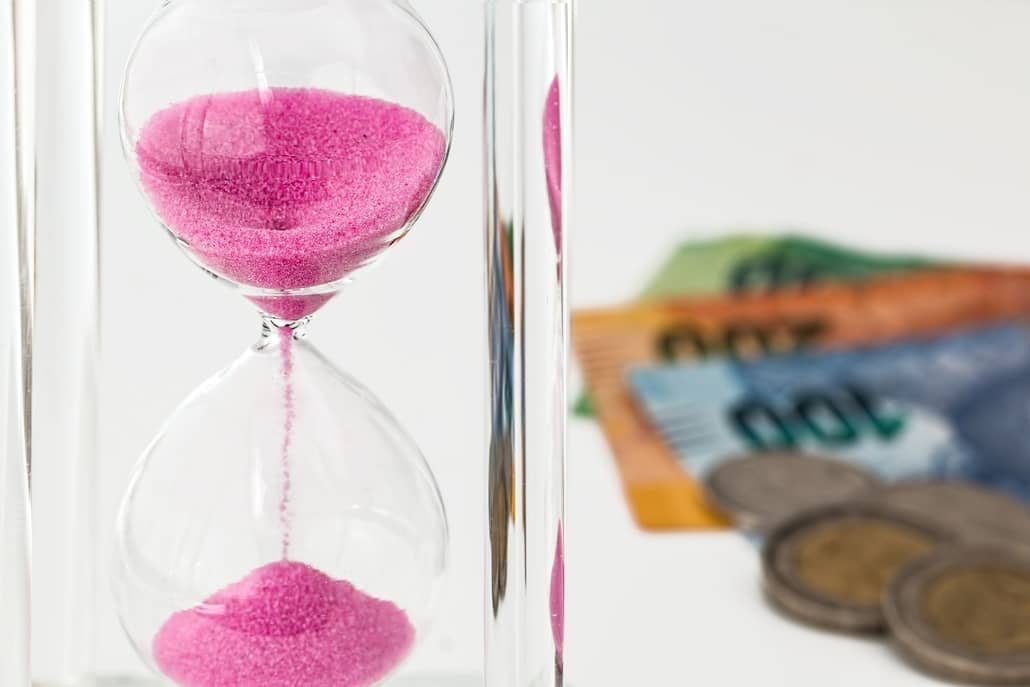
Another way to angle shoot online is by abusing the timebank.
When you play online, you’re given a certain amount of time to make your decision on every street plus the time bank, i.e., the additional time you can use in difficult spots.
Most players go with the flow and take the time when necessary; otherwise, they quickly fold their hands, not wanting to annoy others.
Some, however, will purposefully take the full amount of time to act on every street, which significantly slows down the pace of the game. Sometimes, this is done out of spite (after losing a big pot), but sometimes the goal is to get other players on tilt.
This isn’t a very effective strategy in cash games as players will just move to a different table but can be a real nightmare in tournaments.
You’re basically stuck with someone who takes forever to act in every hand on every street. After a while, it can start to really get to you, and you’ll want just to be done with it, which is exactly what the angle shooter wants. They want you to start playing every hand and giving your chips away.
Don’t give them the satisfaction.
If you happen to find yourself in this situation and you don’t have other tables running to keep you occupied, fire up a video or something on the side. Sadly, you can’t do much to get them to act faster, but don’t let them get under your skin, either.
To Angle Shoot or Not – It Is the Question?

I said at the start that I would try not to get too philosophical in this article, but I feel at least something needs to be said about the pros and cons of poker angle shooting.
If there are no real consequences connected to it, is it really that bad?
When you see the player frown after seeing the river card, is it that bad to say “I got there on the river” (lying) and seeing if they muck?
I don’t really have an answer to these questions.
Players have been getting away with these kinds of things for years. Some have even done it on TV, and apart from a bit of backlash from their fans, not much else had happened. So, it does seem that angle shooting, or at least some of its forms, has been pretty much accepted even if not condoned.
But it’s a douche-like behavior, make no mistake about it, and it won’t win you any friends in the community or at NVG twoplustwo poker forum.
And if you cross that line once too many times, you could actually get banned from a poker room. Maybe you aren’t breaking any official rules, but if too many other regulars are complaining about you, the room may decide that it’s just not worth having you around.
In the end, it’s your call. Personally, I’ve never pulled an intentional angle, and I’ve even given up pots a couple of times where players misinterpreted my action but had a better hand. I’ve also lost a few pots to angle shooters, and I’ve learned my lessons the hard way.
One thing I do know that poker would be a very ugly and unappealing game if all of a sudden everyone started to pull angles left and right.
Angle Shooting – Summary
Angle shooting is a part of poker. There will always be players ready to bend the rules and come really close to that line if they think it will help them win a pot. That’s just how it is, and I don’t think that will ever change.
So, as a poker player, you need to be aware of different angle shooting techniques and make sure you don’t become a victim of one of them.
Hopefully, tips and tricks in this article will help with that. It’s really not that hard as long as you stay careful and pay attention.
If, however, you do get angled, try to brush it off as quickly as you can. If there is nothing that can be done about it, try not to get overly upset. Take it as another bad beat and learn from it.
The next time someone tries to pull the same trick on you, you’ll see them coming from a mile away, and you might even be able to turn the situation to your advantage.
- Poker Squeeze Play – Which Hands Make the Most Sense for Squeezing? - August 10, 2023
- How to Play Low Pocket Pairs in Texas Hold’em - July 29, 2023
- How to Make Deep Runs in MTTs More Often - July 22, 2023











